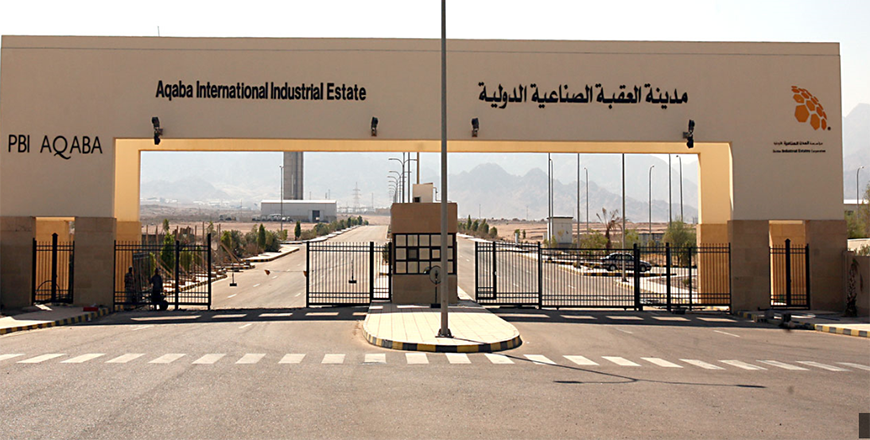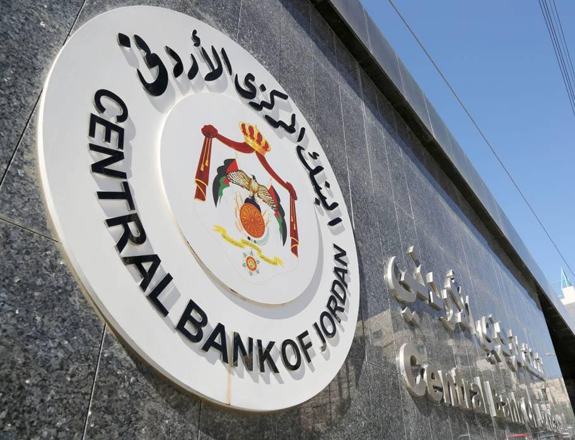You are here
National economy demonstrates resilience thanks to Royal support, clear economic vision
By JT - Dec 29,2024 - Last updated at Dec 29,2024

Economic experts say that the national economy has maintained stability and resilience during 2024 despite regional instability, bolstered by Royal efforts, a clear economic vision, and prudent fiscal and monetary policies (JT file)
AMMAN — The national economy has maintained stability and resilience during 2024 despite regional instability, bolstered by Royal efforts, a clear economic vision, and prudent fiscal and monetary policies, according to economic experts.
They noted that this year witnessed "relentless" efforts led by His Majesty King Abdullah to strengthen the national economy's resilience, shield economic sectors from the repercussions of rising regional tensions, and advance the implementation of the Economic Modernisation Vision through genuine public-private sector partnership.
The national economy received support from international institutions, reflecting the Kingdom's high credibility in fulfilling its commitments and implementing structural reforms, according to the Jordan News Agency, Petra.
This enhanced international market and donor confidence, resulting in an improved credit rating for the country and the successful completion of the second review of the financial and economic reform programme with the International Monetary Fund (IMF).
Economic matters remained a priority for His Majesty King Abdullah in 2024, both locally and internationally.
His Majesty held numerous meetings with local and international economic stakeholders, focusing on promoting investments, fostering economic growth, and leveraging the Kingdom's strategic location, free trade agreements, and skilled human resources.
Key Economic Indicators and Achievements
Mohammad Qaryouti, investment and business consultant and member of the Jordanian Economic Forum, highlighted that Jordan, under the leadership of His Majesty, has relied on the collective efforts of public and private institutions, as well as the Jordan Armed Forces–Arab Army (JAF) and security apparatus, to ensure stability and security.
Qaryouti noted that the assets of Jordan’s 20 banks reached JD70 billion, nearly 200 per cent of the GDP, which stands at JD37 billion.
Deposits amounted to JD46 billion, reflecting Jordanians’ confidence in their economy and financial system.
He also pointed to the financial inclusion rate surpassing 45 per cent, while the Central Bank of Jordan (CBJ) foreign currency reserves reached approximately $21 billion, covering over eight months of imports—among the highest global ratios.
The dollarization rate dropped below 17 per cent, indicating significant trust in the Jordanian dinar and its purchasing power.
Jordan maintained moderate economic growth rates despite global challenges over the past four years, with a projected growth rate of 2.5 per cent for next year.
Inflation remained stable, staying below 2 per cent, unlike fluctuations observed in major global economies.
Qaryouti emphasised Jordan’s success in expanding its international trade agreements, enabling total exports to grow by 6 per cent, national exports by 4 per cent, and re-exports by 30 per cent, while reducing the trade deficit by over 5 per cent.
Industrial production reached nearly JD20 billion, with continued growth in output across industrial sectors and expanded access to over 140 international markets.
Under His Majesty’s leadership, Jordan achieved self-sufficiency, ensuring no shortages in local markets, despite water scarcity challenges. Water supply remained uninterrupted across the Kingdom.
Economic Modernisation and Job Creation
Qaryouti noted the 2025 budget reflects the state's commitment to relying on domestic resources to address its deficit, aligning with the Economic Modernisation Vision, which aims to create more job opportunities and address unemployment challenges.
Director-General of the Jordanian Businessmen Association Tarek Hijazi highlighted His Majesty’s unwavering efforts to support economic reforms and foster a business-friendly environment.
Hijazi also emphasised the notable development in public-private sector relations, leading to collaborative initiatives that benefit the national economy. The private sector has increasingly contributed to innovation and productivity.
He pointed out the role of sound monetary policies in boosting investor confidence, creating a supportive investment climate, and improving key economic indicators.
Outlook for 2025
According to Hijazi, global interest rates are expected to decline further in 2025, following significant impacts on achieving economic modernisation priorities.
Economic improvements began under the current government through stimulus measures targeting trade, service, and industrial sectors.
The CBJ maintained the dinar’s purchasing power, supported monetary stability, and stimulated economic growth by reducing interest rates three times in 2024, totalling 100 basis points.
Jordan’s credit rating saw notable improvements in 2024, reflecting growing confidence in its robust and stable economy, its resilience to regional and international challenges, and the impact of economic reforms.
Several agreements were signed with friendly and neighbouring countries, and numerous economic and developmental projects were inaugurated across the Kingdom.
Related Articles
AMMAN — The Central Bank of Jordan (CBJ) announced on Saturday a 25-basis-point reduction in interest rates across all monetary policy instr
AMMAN — Experts have explained that the national economy has shown "remarkable" adaptability and resilience despite regional geopolitical ch
AMMAN — The Open Market Operations Committee of the Central Bank of Jordan (CBJ) on Thursday decided to maintain interest rates on mon

















